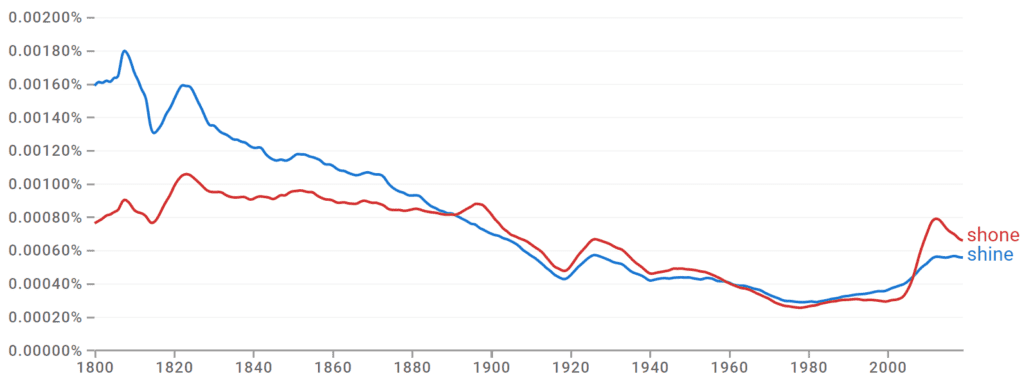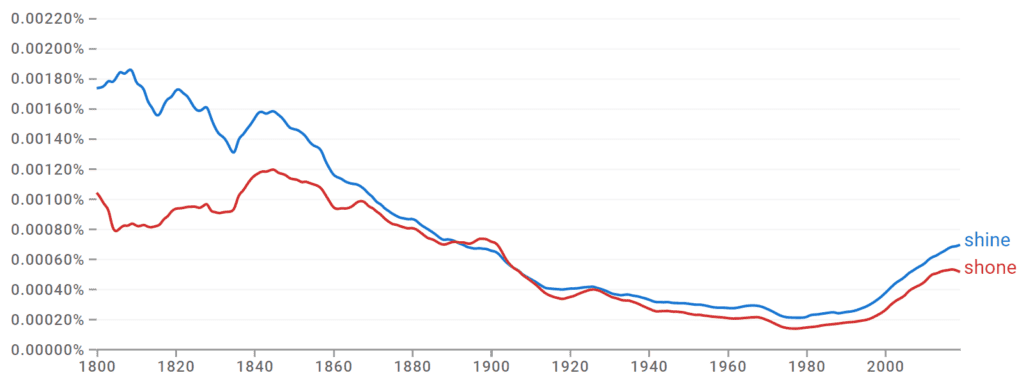As a writer and former editor, one of the questions I’ve heard several times is whether it’s right to say “shined” or “shone.” The truth is, they’re both right. They’re both used as the past tense of shine. But there is one key difference between using them. Don’t worry; I’ll explain what you should know when using shined and shone.
What Is the Past Tense of Shine?
The proper past tense of the verb shine is shone, which is also the past participle form. For example, the sun shone brightly yesterday. However, it’s more commonly used in the UK. In America, we use “shined” as the past tense form of “shine” and would say the sun shined brightly yesterday.
Is It Shined or Shone a Light?
Again, both are technically right and acceptable forms. It depends on whether you’re dealing with an American or British audience. Shined a light will be more accepted in North America, but shone a light would be better to use in the UK because that’s their preferred form. Even when you say them out loud, shone a light sounds British.
Is It Shined Through or Shone Through?
Another common question people ask is whether to use “shined through” or “shone through.” Once again, both are right and common forms, even though shone through doesn’t roll off the tongue as well as shined through.
When to Use Shined and Shone
As I said, “shined” and “shone” are both correct and proper usage of the past tense of “shine,” but you use them differently depending on the region. In American English, “shined” is more commonly used, while in British English, “shone” is much more preferred.
While both would be understood in either region, using the wrong one in certain situations can create some confusion.
Using Shined and Shone in a Sentence
- I know it’s outdated, but I still shined my shoes for the job interview.
- The sun shined brightly on the beach, and I sat outside all afternoon, soaking it up.
- My daughter shined the flashlight on the dark path behind our cabin when she and her brother looked for frogs.
- “The stars have shone brilliantly all night long, don’t you agree, Gromit?” said Wallace.
- I loved how the light shone through the stained-glass window before it got smashed.
- David has really shone in his role as team captain.
- All the kids were great in the play, but your son outshone the others.
- I shined the light over my husband’s shoulder while he fixed the breaker panel.
- A 13-year-old boy needed hospital treatment after a laser pen was shone in his eyes in Eastwood. [BBC News]
- They shined the marble. [National Post]
Shining a Light on Grammar
So, just remember, knowing whether to use “shined” or “shone” depends on the region you’re writing/speaking for. Both words are correct in terms of the past tense form of “shine,” but they are used differently. Always use “shined” for an American audience and “shone” for a British audience, and you’ll be golden!



